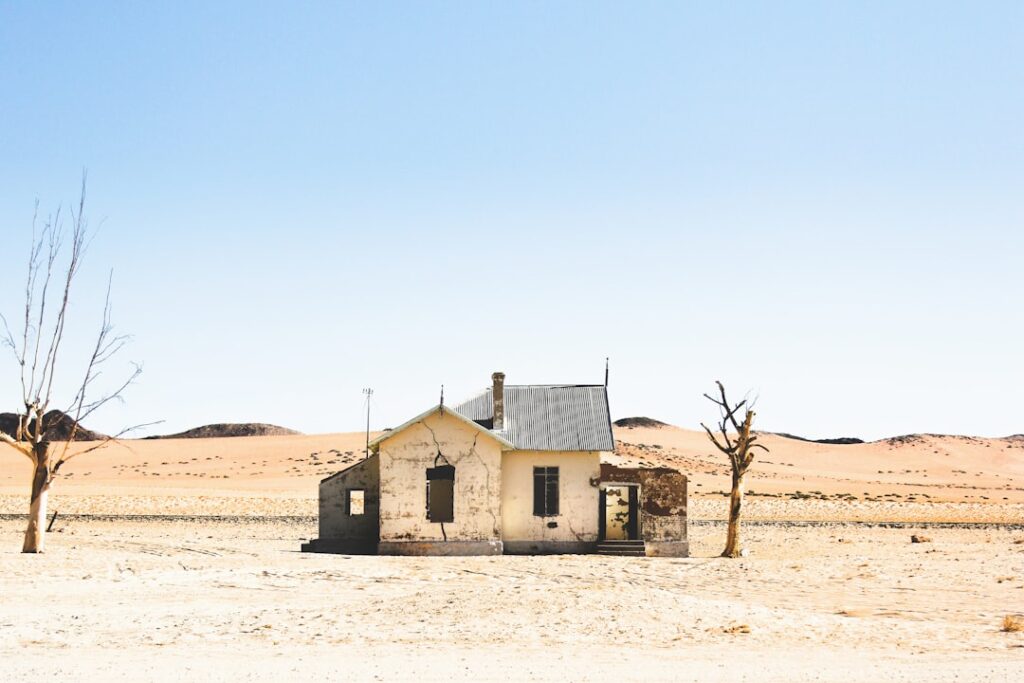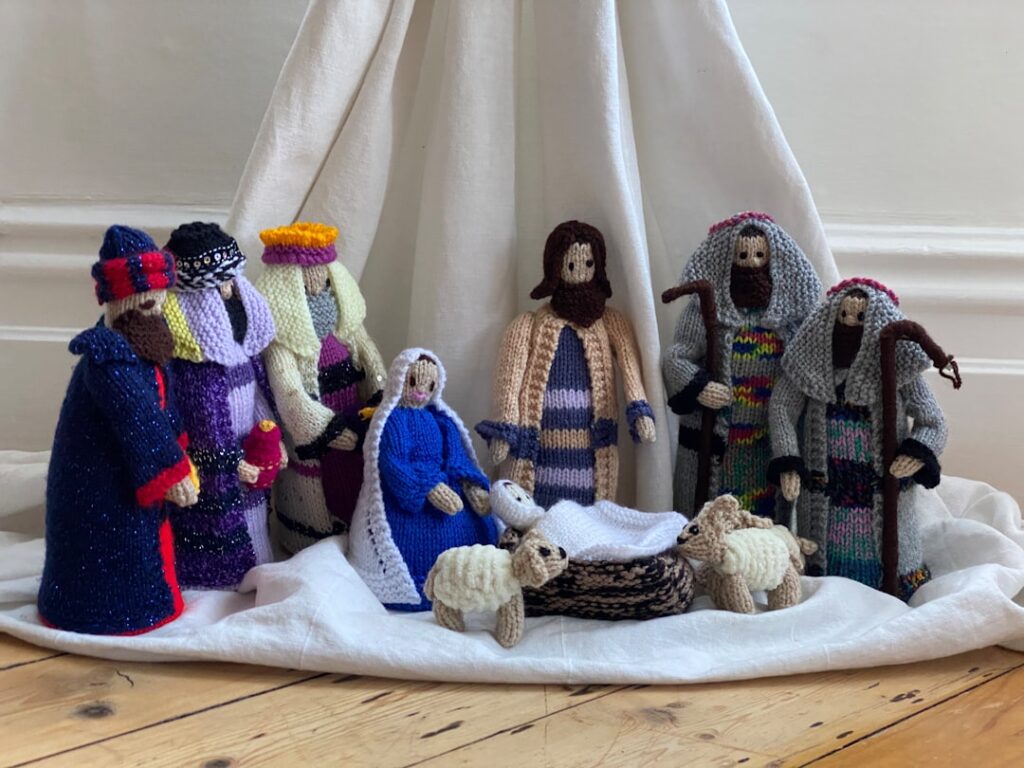 A few years ago, on holiday in Fethiye, Turkey, I borrowed a canoe and made my way across what I considered a short distance over the sea to what I thought was a nearby island. A few hundred yards from the island, I suddenly found the canoe being covered by bees! They had swarmed from the island, and I was the only nearby place for them to settle. It was then that I discovered I could paddle a canoe faster than they could fly. Later, I discovered on Google Earth that the island wasn’t as close as I had thought; it was about one and a half miles away. It’s easy to go adrift in life, forget consequences, and head off course—even with the best intentions.
A few years ago, on holiday in Fethiye, Turkey, I borrowed a canoe and made my way across what I considered a short distance over the sea to what I thought was a nearby island. A few hundred yards from the island, I suddenly found the canoe being covered by bees! They had swarmed from the island, and I was the only nearby place for them to settle. It was then that I discovered I could paddle a canoe faster than they could fly. Later, I discovered on Google Earth that the island wasn’t as close as I had thought; it was about one and a half miles away. It’s easy to go adrift in life, forget consequences, and head off course—even with the best intentions.
Similarly, Matthew 7:24–27 is one of those teachings of Jesus that grabs you by the shoulders and shakes you awake. It’s an unsuspecting story about two builders. One builds a house on rock. The other builds on sand. Already, you can see a problem emerging. The storms come—because storms always come—and what happens next is revealing. The house on the rock stands, but the one on the sand? It collapses. And Jesus doesn’t leave it as an abstract parable. He’s direct: He says, “Everyone who hears these words of mine and does them will be like a wise man who built his house on the rock.”
There’s absolutely no ambiguity here. No “maybe this applies to you.” It’s personal; it’s now. Jesus is pointing directly at us—at the lives we’re building, at the foundations we’re choosing—and He’s saying, Are you ready for the storm? And here’s the thing: the storm is inevitable. It will come, whether you are wise or, heaven forbid, foolish.
All of us live in a world where systems crumble, nations quake, and societal shadows lengthen. The evidence is everywhere. Our culture celebrates speed over substance, façade over foundation, and image over integrity, with the supposition that everything can be fixed. We’re told to chase more, be more, and consume more. But when the storms hit—and they will—those hollow pursuits don’t stand a chance. The winds of suffering, disappointment, loss, and uncertainty blow relentlessly, and suddenly one can realise: the foundations aren’t there.
This parable from Jesus, our friend, Lord, and Saviour, is about more than surviving storms. Don’t be distracted. It’s about what we’re building our lives on right now. It’s about the choices we’re making when the skies are still blue, when the winds are just a whisper, when we think we’re safe and all is well with the world, our church, and our life.
Jesus is clear. The only sure foundation is Himself—His words, His life, His death, His resurrection. It’s not just about believing in Him; it’s about hearing and doing what He says—the ministry and discipleship strapline, surely, for 2025. It’s about surrendering to His call to live a life assembled, shaped, and moulded by grace, truth, and love. It’s about allowing His gospel to redefine everything—your priorities, your relationships, your purpose.
And let’s not pretend this is easy—as if there’s a quick fix, a few 6″ nails hammered in and securing things for the long haul. Building on rock takes time. It’s slow, deliberate, and often unseen. It means rejecting the quick fixes and shallow foundations the world offers. It means digging deep, letting the Word of God sink into the cracks and corners of every area of your life. It means facing the hard questions and addressing the elephants in the room—the fears you’ve buried, the sins you’ve excused, the idols you’ve propped up, and the challenges of the gospel you’ve ignored. Perhaps you haven’t—you can decide. If you say, not me, I’ll take you at your word.
But, when the work is put in, there’s the promise: when the storm comes, the house stands.
Now let’s shift gears a bit, because this isn’t just about individual lives—it never is—it’s also about the Church.
When Jesus spoke these words, He wasn’t just handing out life advice. He was announcing a new kingdom, gathering a community of people who would live under His rule, built on His foundation, taking wisdom from Him and applying it lavishly to their lives. And that’s what the Church is meant to be—a house built on the rock, standing firm against the storms of a broken world. And the Rock is Christ—immovable, solid, firm, resolute.
But let’s be honest: sometimes, the Church doesn’t feel like a house on the rock. Sometimes, it feels more like a house built on shifting sands. We avoid hard truths because they’re uncomfortable. We easily focus on appearances instead of depth. We trade the gospel’s awesome and magnificent power for legalism or, worse, for a watered-down, seeker-friendly message that offends no one and changes nothing.
And when the storm comes? Those cracks start to show. Slowly at first, then escalating quickly.
This is where we need to have a moment of honesty with each other because if the Church is going to be the answer (and it really is)—if it’s going to stand firm in a world of crumbling foundations—we can’t avoid the hard conversations. Neither can we pretend the storms aren’t coming or that we’re immune to them. We have to be real about our struggles, our doubts, our failures—and also our confidence in God.
This is not about guilt-tripping or finger-pointing. It’s about grace. It’s about looking each other in the eye and saying, Let’s build this thing right. Let’s dig deep. Let’s make sure we’re standing on the gospel and nothing else.
The Church is the answer because it’s the only place where we can truly face the storm together. It’s where we remind each other of the foundation we stand on. It’s where we speak truth in love, even when it’s hard, where we call each other to repentance—not out of judgment, but out of hope. It’s where we point each other to the cross and say, This is where your foundation and joy begin.
Don’t underestimate the power of encouragement in this process. Keep the encouragement tank full and attempt to empty it every day. Encouragement is not about vague affirmations or surface-level positivity. No, it’s about speaking life, hope, and vigour into each other’s souls. It’s about saying, I see what you’re going through, but don’t give up. Do. Not. Give. Up. Christ is your rock. His grace is enough.
Here’s the mind-numbing truth: we were never meant to face the storms alone.
The beauty of the Church is that it’s not just a building; it’s a body, a community of people being built together into a dwelling place for God (Ephesians 2:22). When the Church is built on the rock of Christ, it becomes an unshakable refuge—not just for its members, but for the world around it. The gospel is good news to the nations—and so is the envoy of that message: the Church. We’ve got the answers, and where we don’t, we know the One who is the answer.
Think about that. A Church standing firm in the storm doesn’t just survive; it becomes a beacon. It shows the world what it means to have a foundation that cannot be moved. It offers hope to those watching their own lives crumble, pointing them to a kingdom that is unshakable and a King who reigns with justice and mercy.
But that can only happen if we ourselves build wisely.
Two challenges: what are you building your life on, and what are we building the Church on? Are we digging deep, anchoring ourselves in the truth of God’s Word, and allowing His Spirit to shape us from the inside out? Or are we settling for sand—quick, easy, and ultimately unstable? For preachers, that can mean quick fixes and places where we “wing it” rather than spending the days and hours (not minutes) in prayer and study—wrestling with difficult scripture, doctrine, and theology so we can emerge with answers that matter, that transform, renew, and encourage those listening expectantly, hopefully.
The storms are coming—guaranteed. You can feel it, can’t you? The cultural fractures, the personal crises, the global uncertainties—the “now what?” factor. But here’s the good news: the gospel is stronger than the storm. Jesus is stronger than the storm. Bigger than your storm. His Church, built on Him, will stand.
Response? Let’s get to work. Let’s build, pray, encourage, preach, and prophesy with intention, courage, and grace. Let’s speak the truth to and about each other in love—not avoiding the hard questions, but facing them together, anchored in the hope of the gospel. Let’s be an Emmanuel people who don’t just survive the storm but thrive in it—because our foundation is unshakable.
When the winds die down and the rain stops, the world will see a house still standing, a Church still standing, lives still standing. Not because we were strong, but because our foundation was.
This is the promise, this is the hope, and this is the call—our call—my call: to build wisely, to stand firm, to show the world that in Christ, the storm has no power to destroy what He is building.
Here comes the Church, and in its arms is the gospel—there’s enough good news for everyone to help them build their lives on an immovable, eternal rock.






